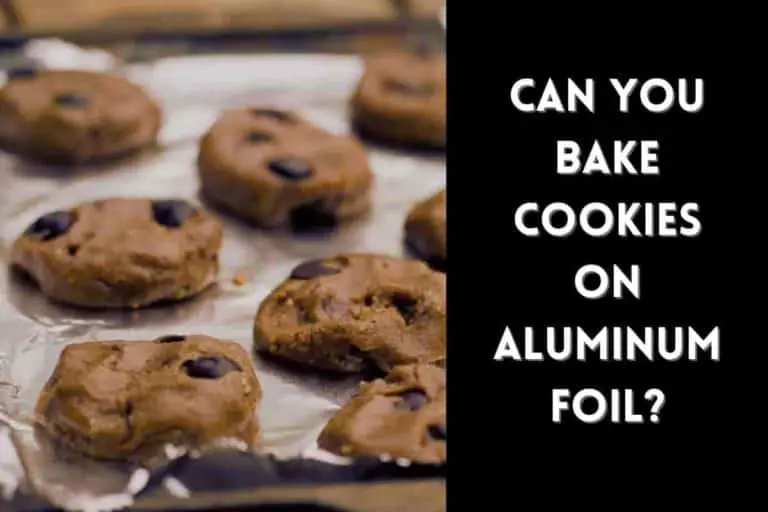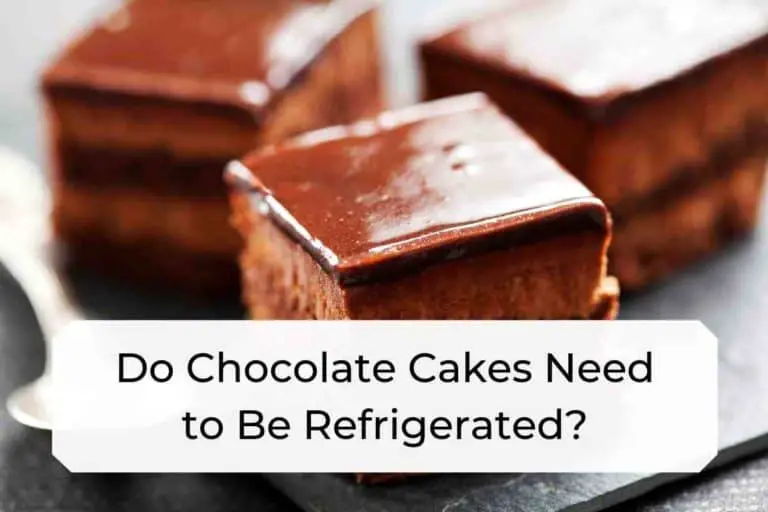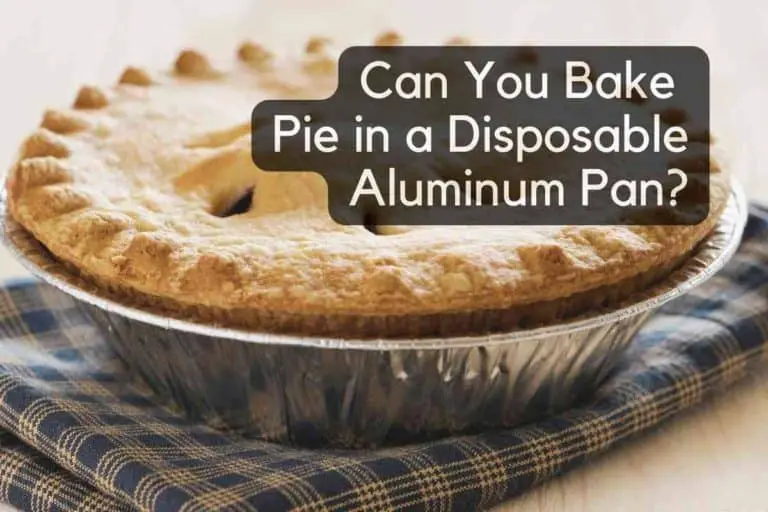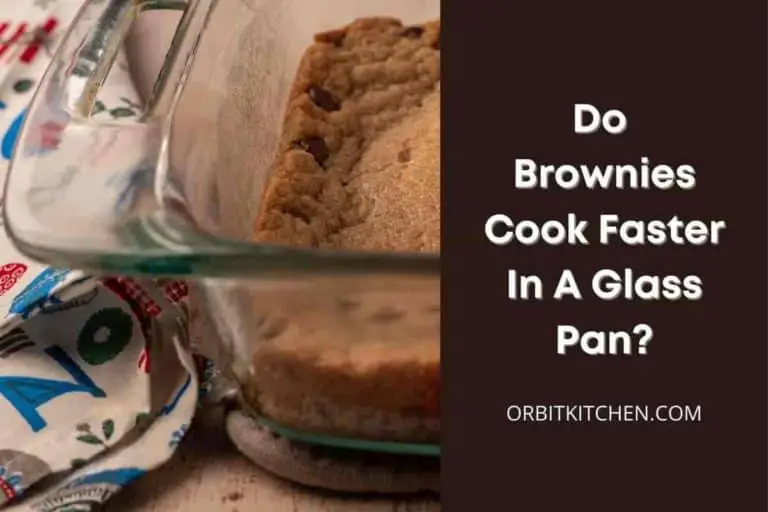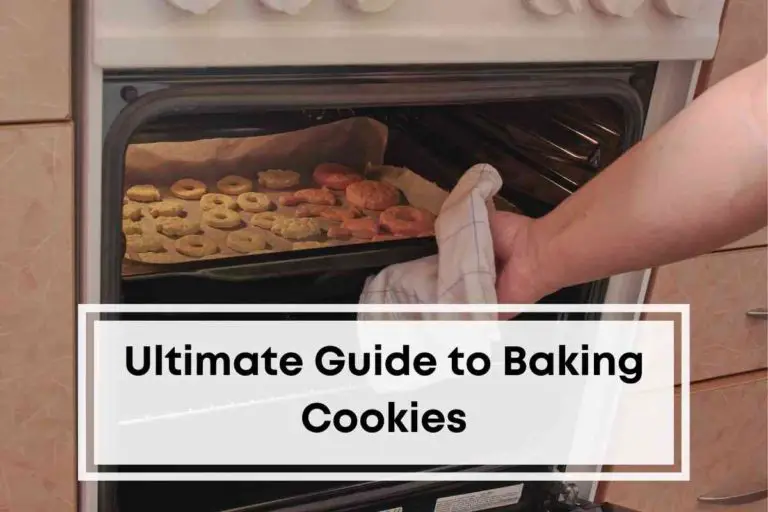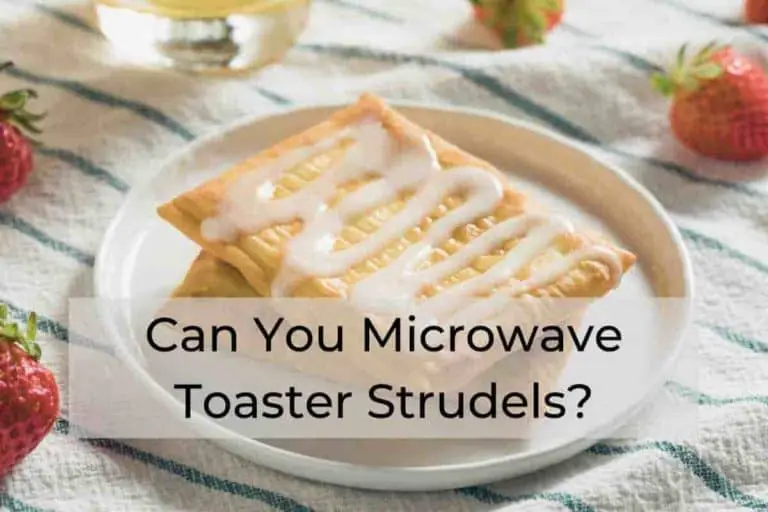Should You Cover a Cake While Baking?
Baking is a complex process, and there are many steps involved. It is essential to avoid cake cracks and overcooking, so whether a cake should be covered while baking or not.
Should you cover a cake while baking?
The cake should be covered while baking because it protects it from direct and indirect heat. It is also a way to trap moisture and carbon dioxide, which keeps the cake moist, fluffy, and light. Cakes often fall because of the lack of air in the center, so covering them prevents them from doing so without adding more air.
It’s common to cover a cake while baking to avoid the cake from drying out and cracking. This is a precautionary measure worth taking, but it may not be necessary. If you don’t cover the cake while baking, you will need to let it cool before you wrap it with plastic or foil so that the cake doesn’t dry out before you assemble it.
In this guide, we’ll explain the topic of whether should you cover a cake while baking, how to cover and some related information; keep reading.
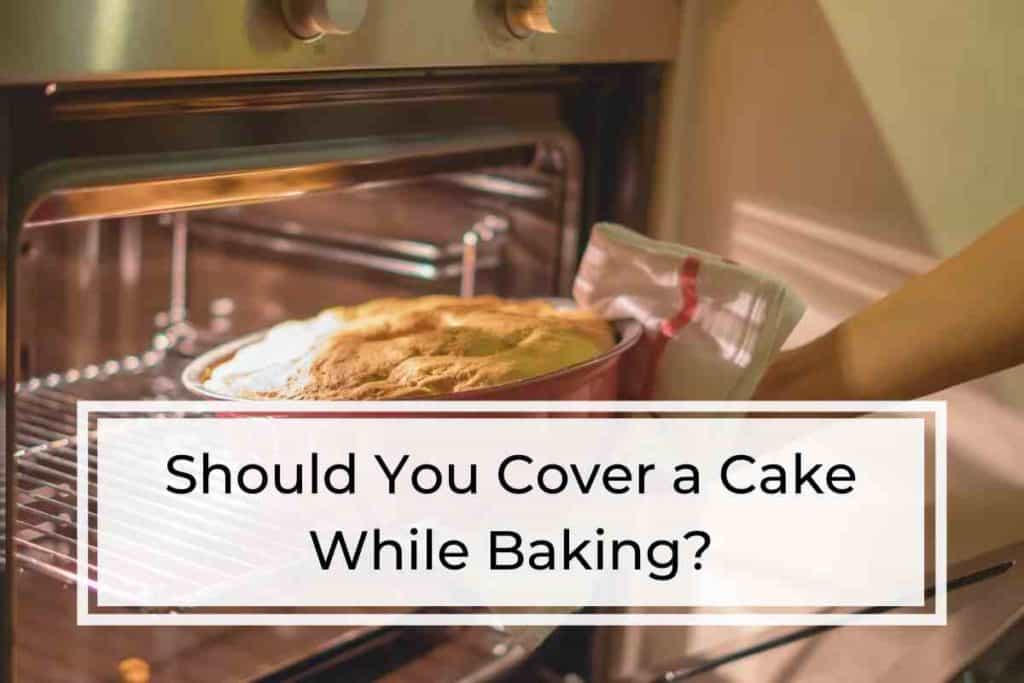
If you are interested in buying the best bakeware products and accessories for the kitchen, be sure to visit my Recommended Products Page (click to see my page), Which includes all of my top picks by category.
Should You Cover a Cake While Baking?
Whether or not to cover a cake during baking depends on the type and recipe of the cake.
Covering cakes during baking can cause them to become too moist and prevent them from properly rising. It is crucial to allow heat to circulate freely around the cake to ensure that it bakes evenly and rises.
However, there may be instances in which covering a cake while it bakes is advantageous. For instance, if the exterior of a cake is browning too quickly while the interior is still uncooked, covering the top of the cake with foil can prevent excessive browning while allowing the cake to continue cooking.
In addition, covering cake with foil in oven is good when your cake is fragile or prone to drying out. So a lid or foil can help to retain moisture and prevent them from drying out too quickly.
In order to determine whether or not to cover a cake while baking, it is always best to refer to the recipe instructions.
Why Should You Cover the Cake While Baking?
It is essential to cover your cake in the oven because the heat will melt and liquefy the frosting. If you leave the cake uncovered, it could buckle or crack when you take it out of the oven. You should also make sure that none of the cake touches the walls or floor of your baking pan; this can cause a breadcrumb in your cake.
If you think your oven runs hot and may burn your cake, cover it as soon as it turns golden brown around the edges by placing an aluminum foil tent over the top and sides of the cake pan. The tent will protect your cake and prevent it from burning or drying out.
Whether or not you should cover your cake depends on a few factors:
- If your recipe doesn’t contain any leavening agents, like baking soda or baking powder, then covering the cake will help prevent burning or over-browning.
- If your cake takes longer than expected to bake in the center, then covering it with aluminum foil can help prevent its edges and outer layers from becoming too dry while you wait.
- If your cake’s center is not cooking as quickly as its outer layers, then covering it with aluminum foil can help ensure that its edges don’t get overcooked while the rest finishes up.
- Suppose your oven temperature is on the high side (usually more than 375°F). Covering with aluminum foil could be necessary to prevent an overly dark crust before the center has finished cooking.
What Happens When You Cover the Cake While Baking?
Cakes are very susceptible to drying out, so covering the cake while baking prevents this from occurring. The cover also prevents over-browning of the cake’s surface; if your oven operates on hot air alone, you may want to cover it as it bakes.
This is because cakes bake best when they’re in moist environments, and having a cover allows moisture to stay locked inside the oven.
Also, covering a cake helps prevent burning on top or bottom and keeps it moist throughout its cooking time.
A covered cake will also bake more evenly, and covering your cake with foil or a lid before placing it in the oven can help prevent cracks in the surface of your cake and over-browning around the edges.
Read Also: Why Does Cake Shrink After Baking?
Can You Cover a Cake with Foil When Baking?
To prevent a cake from browning too much or to cook it more evenly, you can cover it with foil when baking it. To do this, wrap aluminum foil around the cake pan with the shiny side facing down and place it in the oven.
If you want to prevent your cake from browning too much, a parchment paper collar can be placed on top of your pan before you put the batter in it. This method makes it easier to remove cakes without damaging them.
Can I Wrap My Cake in Tin Foil?
Tin foil is an excellent material to wrap in the kitchen. However, it has a tendency to rust from dampness or moisture. To prevent the cake from rusting, you can cover it with plastic wrap instead of wrapping it with tin foil.
Many people believe that covering a cake with tin foil is helpful, but this method can cause issues. Cover your cakes with foil if you need to keep them for a long time in the freezer.
It will stop them from drying out and forming ice crystals. If you do not have room to store your cake in the fridge, leave it on the counter.
When you are baking a cake, sometimes it can be tempting to wrap it in tin foil while it is still warm or hot, especially if you have just taken it out of the oven and want to quickly put it away so that nobody eats it before its meant to be eaten.
However, wrapping a cake would help preserve its freshness or improve its flavor and texture; unfortunately, this is not the case!
Read Also: What Temperature is Best for Baking a Cake?
How Long Should a Cake Cool Before Covering?
Cakes should cool for about an hour before covering. If the cake has been in the oven for a long time, it is best to take it out to cool if you want to cover it while it’s still pliable.
You should allow your cake to cool for one hour before frosting it. This will prevent the cake from cracking. This will also enable the cake to firm up and become easier to work with. If you want your cake to cool faster, wrap it tightly in plastic wrap and then place it in a bowl of ice water.
It’s essential to cool the cake completely before covering it. This ensures that the cake will not absorb any more moisture from the outside air and cause the cake to become soggy. Once the cake has cooled completely, you can cover it with your favorite frosting or glaze recipe.
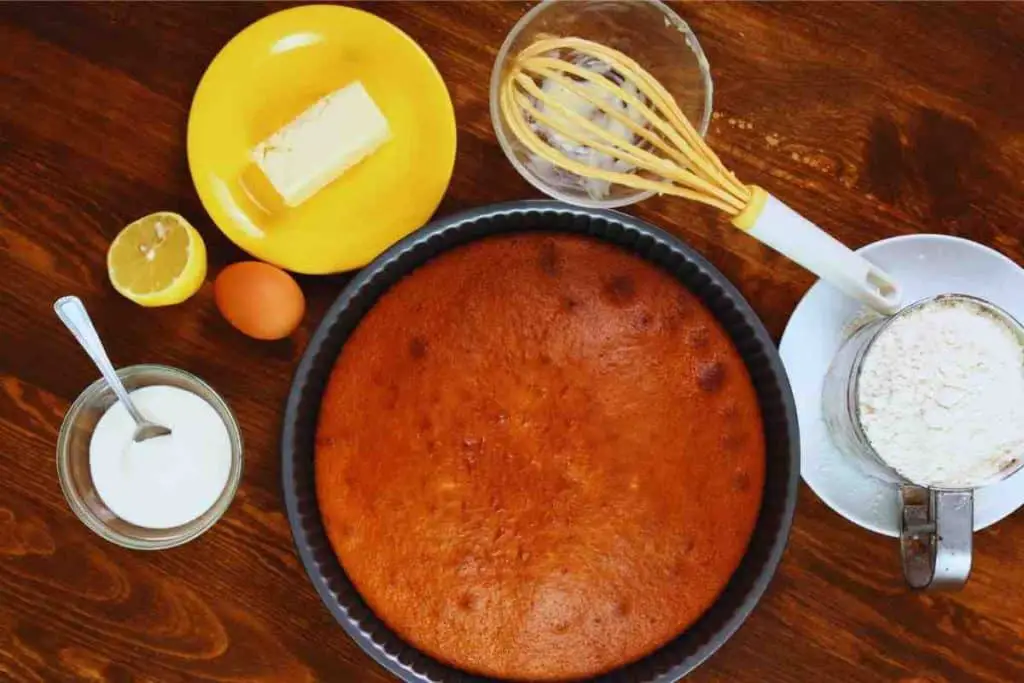
Pros and Cons of Covering Cake While Baking
Covering a cake while baking can have both positive and negative consequences.
PROS
- Covering the cake keeps it moist.
- It prevents the cake from getting burned on the bottom, allows the cake to rise evenly, and prevents it from sticking to the sides of the pan.
- Covering the cake protects it from the oven’s heat, which can dry it out. This is especially important if you’re leaving your home to do other things while your cake bakes, as you won’t be there to keep an eye on how quickly your oven cooks things.
CONS
- The main disadvantage of covering is that you cannot see what is happening inside the oven.
- Also, the cake is not as light and fluffy as it would be if you made it while it was in the oven.
Read Also: Can You Leave the Cake in the Oven After Baking?
Conclusion
You can cover a cake while baking because covering a cake will help it retain moisture, create a barrier between the cake and the dry environment, and maintain its temperature.
Whether you’re covering a cake with foil during baking or with plastic wrap after baking, these two methods will keep your cake moist and delicious for extended periods.
FAQs
Can I Cover My Cake While Baking?
Yes, you can cover your cake while baking to prevent the top from getting too brown.
Do You Cover Cake When Baking?
It depends on the recipe, but some cakes may need to be covered while baking to prevent them from over browning.
Can I Cover Cake with Foil While Baking?
Yes, you can cover a cake with foil while baking to prevent the top from getting too brown.
Can You Cover a Cake with Foil While Baking?
Baking cake covered with aluminium foil: Yes, covering a cake with foil while baking can help prevent the top from getting too brown.
Can I Cover My Cake with Foil While Baking?
Covering cake with aluminium foil while baking: Yes, you can cover your cake with foil while baking to prevent the top from getting too brown.
Can I Cover Cake with Foil While Baking?
Yes, covering a cake with foil while baking can help prevent the top from getting too brown.
Should I Cover My Cake with Foil?
It depends on the recipe and desired outcome, but covering your cake with foil while baking can help prevent the top from getting too brown.
Can I Cover My Cake with Aluminum Foil After Baking?
Yes, you can cover your cake with aluminum foil after baking to help keep it moist and prevent it from drying out.

